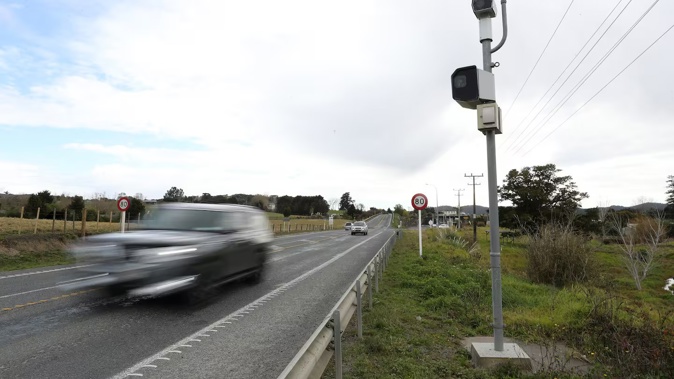

A man who took his fight against an $80 speeding ticket all the way to the Supreme Court, and lost at nearly every turn, racked up $34,000 in legal fees and was declared bankrupt when he couldn’t pay them.
Peter Prescott has now failed to have his bankruptcy annulled, and is liable to pay more legal fees to the New Zealand Police after another unsuccessful trip to court.
In July 2016, Prescott was caught driving 64km/h in a 50km/h zone and was sent a ticket for it. However, he tried to claim he wasn’t driving the car, nor did he own it.
When he didn’t pay the fine and the matter went to court, Prescott didn’t show up and he was fined a further $80 and $30 in court costs.
Two years later, Prescott unsuccessfully appealed the fine in the District Court and rather than seek leave to appeal he sought a judicial review of that decision.
That request for review was struck out and Prescott was ordered to pay nearly $7000 in court costs.
Prescott tried unsuccessfully to have the High Court recall that judgment before making a bid to the Court of Appeal to stay the costs order.
That was also dismissed and close to $6000 was added to his burgeoning debt.
A further $2500 was added to the bill after Prescott tried and failed to get leave to apply to the Supreme Court.
Prescott did have one small win in 2020 when he applied to the High Court to appeal the original District Court decision before applying to the High, Appeal and Supreme courts to recall earlier decisions to decline a judicial review.
Then in December 2020 police served a bankruptcy notice on Prescott for failing to pay them close to $7000 in court costs. Prescott tried and failed to have this bankruptcy notice set aside and was ordered to pay a further $12,000 in costs.
By September 2021 Prescott owed the police $27,000 and in 2022 he was declared bankrupt.
Prescott appealed this, then tried to have the order suspended, then tried his hand at the Court of Appeal to have the order reversed. None of which was successful.
‘He simply failed to bring the requisite evidence’
In March this year, Prescott tried to have his bankruptcy annulled in the High Court at Auckland on the basis that the process of the hearing, which declared him bankrupt, was unfair because he had a hearing deficiency that prevented him from fully participating in the hearing.
At that same hearing in 2022, Prescott raised five cross-claims against the police, but didn’t produce any actual evidence to support them.
Prescott claimed he raised this issue with the court at the time, but it did nothing about it.
In his submissions to the High Court, he cited the Bill of Rights Act, which states that a person must be given a fair opportunity to be heard and a reasonable opportunity to present their case.
Prescott said he was deprived of the opportunity to properly or fully present his case and this was a failure in procedure and process.
Associate Judge Paul Cogswell said he had carefully considered Prescott’s submissions but couldn’t find anything in the conduct at the original bankruptcy hearing that reached the standard to annul the order.
“First, the applicant was never deprived of an opportunity to raise cross-claims in opposition to the bankruptcy application,” he said.
“The applicant’s claimed hearing deficiencies did not interfere with his ability to properly prepare his adjudication opposition and substantiate his alleged cross-claims. The applicant had known for many months that evidence was required to support any such argument.
“He simply failed to bring the requisite evidence to establish the cross-claims.”
Associate Judge Cogswell said nothing police did or said prevented Prescott from putting his case forward.
“The applicant has not pointed to any ground relied on by the police in the adjudication hearing that he could not respond to or was embarrassed by,” he said.
Prescott also did not provide any evidence that he had a hearing impediment to the court.
Associate Judge Cogswell dismissed Prescott’s claim on the basis he was unable to prove that the hearing had defects, was an abuse of process, there was any evidence that could have affected the outcome or that there was any other reason why he shouldn’t have been declared bankrupt.
Police are entitled to claim more legal costs against Prescott because of the unfavourable ruling, which will be determined at a later date.
Jeremy Wilkinson is an Open Justice reporter based in Manawatū covering courts and justice issues with an interest in tribunals. He has been a journalist for nearly a decade and has worked for NZME since 2022.

Take your Radio, Podcasts and Music with you









